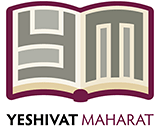
International Beit Din, Support for Agunot, New York
Targum Shlishi supported the brand-new International Beit Din in 2014, and continued its support in 2015. The International Beit Din is a religious court focused on eliminating injustice and discrimination in Jewish divorce. This innovative new initiative is based in New York and spearheaded by Orthodox rabbis in the U.S., with support from many Israeli haredi colleagues. The court, led by Rabbi Simcha Krauss, was formed in June 2014 and began officiating cases shortly thereafter. It is an independent institution with no organizational affiliations. According to Jewish law, a divorce is valid only when a get (divorce document) is voluntarily handed from husband to wife. When the husband refuses to grant his wife a get, he withholds her freedom to remarry; she is left chained to her husband as a mesurevet get. The International Beit Din is distinguished from other rabbinic divorce courts in certain critical ways. In addition to its mission to apply halakhic solutions to the problem of get refusal, the court considers itself a teaching beit din that holds conferences and other outreach activities and makes its work completely transparent. Additionally, it has established several procedures designed to provide support throughout the process for the women seeking gets. Resolving the problem of Jewish divorce “will require a paradigm shift, and the International Beit Din, with its absolute fidelity to halakha and commitment to social justice, may be the appropriate institution to reach for this goal,” says Blu Greenberg, the founder of JOFA, who has played a significant role in the establishment of the International Beit Din. The International Beit Din grew out of the Aguna Summit, held in June 2013 at NYU Law School and co-convened by Tikvah and JOFA. The purpose of the summit was to hold an open forum to explore the various systemic solutions to the problem of get abuse, acknowledging that despite forty years of activism, the problem has persisted. The decision to create a special beit din grew out of the summit. The court was established in the U.S. because the Chief Rabbinate would not permit the establishment of an independent beit din in Israel.

Beit Hillel, Get Refusal Solutions Initiative, Ra’anana, Israel
Beit Hillel is a centrist Orthodox organization that promotes an inclusive Judaism that speaks to religious, traditional, and non-observant Jews. The Get Refusal Solutions (GRS) Initiative has a central goal of promoting and supporting the application of halachically valid solutions to get refusal worldwide. The target audience for the GRS efforts includes the Israeli Jewish public, Israeli government policy makers, rabbis, educators, public figures, and community leaders. The goals of the project include:
- Adopting halachically valid, practical, and effective solutions to get refusal, and making them accessible to a broad audience
- Initiating a grassroots educational campaign advocating for universal implementation of the Halachic Pre-Nuptial contract, as well as general moral support for agunot
- Influencing the thinking of central players such as Rabbinical Court judges, rabbis, educators, and community leaders so that they act in a determined manner to achieve a solution
- Building a coalition of rabbinic and lay leaders from Israel and the diaspora that promotes the Halachic Pre-Nuptial Agreement and other solutions, including, if need be, a special international Beit Din for agunot.

JOFA (Jewish Orthodox Feminist Alliance), Joy of Text Podcast, New York
The Joy of Text is a new monthly podcast about Judaism and sexuality. The podcast launched in January 2015 and is co-hosted by Rabbi Dov Linzer and Dr. Bat Sheva Marcus and moderated by Maharat Ramie Smith. The Joy of Text features in-depth conversations by rabbinic and medical experts about subjects rarely discussed from a halakhic perspective anywhere else, even online. Each episode also includes interviews with guest experts and answers to listener questions. Topics explored on the podcast have included: female masturbation, LGBT Orthodox Jews, “dirty” talk, premarital sex and condoms, talking to kids about going to the mikvah, fantasy, sexual abuse in Orthodox communities, and the halakhic permissability of Kama Sutra cards and vibrators. The Joy of Text has been the #1 Jewish podcast on iTunes, and based on listener feedback, it is changing the lives and marriages of its audience. Anecdotally, JOFA reports that as a result of the podcast there is an observable shift in the way rabbis and congregants in Modern Orthodox schools, synagogues, and communities engage with questions about sexuality and Jewish law. The podcast reaches an average of 2,100 unique listeners per episode, with the audience continually growing. The cohosts are uniquely qualified to host this podcast. Bat Sheva Marcus, Ph.D., a licensed clinical social worker, is the founder and clinical director of The Center for Female Sexuality, the president of JOFA’s Board of Directors, and one of the founding members of JOFA. Rabbi Dov Linzer has been a leading rabbinic voice in the Modern Orthodox community for over twenty years and is the rabbinic head (Rosh HaYeshiva) and dean of the “open Orthodox” Yeshivat Chovevei Torah Rabbinical School. Ramie Smith is a graduate of Yeshivat Maharat and received a bachelor’s of arts in English communications with an emphasis in women’s studies from Yeshiva University.
and

Yeshivat Maharat, Job Placement for Women Spiritual Leaders, Bronx, New York
In June 2015 Yeshivat Maharat graduated its third and largest class of Orthodox women religious leaders to date—six women graduated from the rigorous four-year course of study and joining the five women graduates from previous years. Targum Shlishi provided an innovative grant for Yeshivat Maharat’s 2015 graduates; each student received funds to help them enhance their job search efforts. In addition, the grant provided funds to promote publicity around the topic of female leadership in the Orthodox community. As the only institution that provides Orthodox women with a path to the clergy, preparing women for positions as spiritual and halakhic leaders, Yeshivat Maharat is also at the vanguard of helping its graduates find employment in communities that welcome them. Yeshivat Maharat, established in 2009 by Rabbi Avi Weiss, finds that while many communities and organizations are open to female leadership, there are many others that are resistant. As a result, the institution works diligently to introduce various communities to its students through initiatives such as its Promoting Orthodox Women Spiritual Leaders: Visiting Scholars Program, which Targum Shlishi supported in 2012. To date, all graduates are employed and all members of the class of 2013 successfully negotiated a contract extension after their first year of work.

Har’el Beit Midrash, General Support, Jerusalem, Israel
Har’el Beit Midrash is a recently established rabbinic studies program in Israel for men and women. In June 2015 the institution granted Orthodox rabbinic ordination to its first group of students, comprising two men and two women. Targum Shlishi awarded a grant to the program for its 2015–16 academic year, during which twenty-two men and women were enrolled. Har’el’s program is designed to inspire and prepare tomorrow’s communal leaders to serve as agents of change within a context of continuity. The program brings modern sensibilities into the halachic discourse. Explaining the challenges between commitment to tradition and openness to modernity, Rabbi Herzl Hefter, head of Har’el, notes: “We live lives which embrace Western democratic values such as equality of all peoples and between the sexes…With growing discussions in our ranks about gender, sexual identity, and the question of spiritual passion versus rote observance, we find ourselves at a crucial crossroads…The sacrifice of religious passion is the cost of the divorce of our Judaism from our humanity.” Har’el describes itself as the only Orthodox framework whose students include seasoned pedagogues as well as promising educators and leaders of the future, men and women, engaged in rabbinic studies in an open and supportive learning environment.

JOFA (Jewish Orthodox Feminist Alliance), Chatan and Kallah Teacher Training Workshop, New York
The Chatan and Kallah Teacher Training Workshop was held in June 2015 at the Hebrew Institute of Riverdale. For four days, participants, all of whom were trained educators from Modern Orthodox communities, studied primary halakhic sources and discussed the range of interpretations of hilkhot niddah (laws of menstrual purity). Participants also explored preconceived sexual biases and gained a greater understanding how varied the human sexual response cycle can be. The workshop was taught by professionals with medical, halakhic, and pedagogical expertise. As JOFA’s executive director, Sharon Weiss-Greenberg, noted, the workshop is necessary because many kallah and chatan teachers are unprepared for this role, having been provided with information and resources that are rudimentary at best, and at times incorrect. They often have limited, if any, halakhic options to discuss with participants and don’t have the primary text mastery to fully understand what they are teaching. Additionally, many are understandably uncomfortable talking openly and frankly about sex. This was the third time JOFA has offered this workshop, which was organized in conjunction with Yeshivat Chovevei Torah Rabbinical School and Yeshivat Maharat, a program that educates women to be spiritual leaders.
and

Women’s International Zionist Organization (WIZO), Tel Aviv, Israel
WIZO is dedicated to advancing the status of women in Israel as well as providing for the welfare of all sectors of Israeli society and encouraging Jewish education. Targum Shlishi often supports WIZO initiatives and this year supported both WIZO and WIZO Florida.

